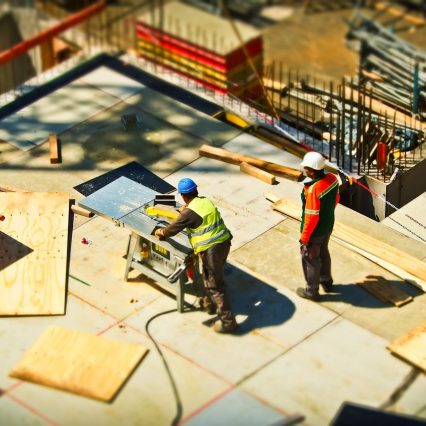Overview
The Brazilian national framework against corruption includes provisions to allow for asset recovery-related proceedings in cases that originate from money laundering and corruption. Liability of legal persons in Brazil is, however, a civil-administrative issue and not a criminal matter. When legal persons are involved in corruption schemes in Brazil, they can only be held responsible through civil-administrative tools mostly based on Law nº 8.429 of 1992 (Administrative Improbity Act), and Law nº 12.846 of 2013 (Corporate Liability Act), both intended to to protect public funds, promote integrity and transparency, and to prevent illicit enrichment of public officials or third-parties when involved with public procurement or with the government.
This means that, once a public servant, a mayor, a businessman or even a corporation engages in an improper, illegal relationship and causes harm to a state-owned entity, to a city or to the federal government or their properties, the perpetrator will often be investigated and can be prosecuted before a civil court pursuant to the Administrative Improbity Act or the Corporate Liability Act, depending if it is a person or a company.
Although the limited criminal liability characteristic of the Brazilian legal framework increases the obstacles to foster asset recovery and makes it harder to succeed in cross-border cases, it can encourage domestic cases. Given the reluctance of foreign authorities to provide formal international cooperation in non-criminal cases, namely in the identification, freezing, seizure and forfeiture of the proceeds of corruption and the damages caused by Brazilian people and companies, civil liability makes it possible, under the Civil Procedure Code, to present claims to reimburse the public treasury, that can result in the payment of damages to the claimant and loss of the assets or valuables that represent illegal proceeds obtained from wrongdoing. Thus, it can be also an effectice tool to recover assets when criminal cases are very lengthy or even unsuccessful, since in the civil sphere, the precautionary measures used to preserve the effectiveness of a victim’s reparation or indemnity are broader and more flexible.
Lavo Jato case
Lavo Jato – or Operation Carwash – was Brazil’s largest ever corruption and asset recovery case. It began in 2014 and saw money laundering investigations at the highest levels of Brazilian politics involving Petrobras, the state oil firm, and construction giant Odebrecht in schemes where bribes were paid for contracts. Brazil alone recovered approximately USD 800 million and convicted almost 280 persons. The scandal stretched beyond Brazil’s borders however, and implicated politicians and business persons from across Latin America, many of whom were arrested and convicted of corruption offences. It was estimated at the time that illegal payments to a total of USD 5 billion were involved in the case. The most high profile – and one of the most controversial – convictions in the case was that of then former President Lula for his alleged involvement, by the main judge in the cases and later justice minister, Sergio Moro.
The case was not without controversy however and there have been consistant allegations of political motivation. Messages leaked in 2019 implicated Sergio Moro in collusion with prosecutors. This led to Brazil’s Supreme Court annuling former President Lula’s convictions in the case, ruling that Moro had exhibited bias. The case was eventually shut down in February 2021 by then President Bolsonaro. Some commentators have suggested this was because there were fears the investigation could reach his own family.
This politicisation has affected work on asset recovery in Brazil. It not only negatively impacted the progress made in the amount of assets recovered from financial crimes between 2014 and 2019, given the decision of Brazil’s Supreme Court invalidating all of the evidence obtained in the Operation Car Wash/ Lava Jato via leniency agreements, but also significantly decreased the willingness of civil society organisations to actively promote and support the anti-corruption agenda in the country, which can be pivotal given the Brazilian legal framework for asset recovery.
Our work in Brazil
Since 2022, CiFAR has engaged with key Brazilian CSOs in developing efforts to improve the perception of asset recovery as a pro-democratic tool among civil society in the country. This seems critical to overcome the obstacles posed not only by the extreme political polarization surrounding the main corruption scandal in the country – Operation Car Wash/ Lava Jato – but also by the significant setbaks in the fight against kleptocracy, due to interferences in the anti-corruption framework, and allegations of high-level officials in corruption crimes.
Given the challenging Brazilian context, our work focusses on the notion that corruption is not a victimless crime, and that asset recovery is essential to end impunity and to compensate victims for their losses, including through the re-use of recovered assets for social purposes.
Our work in Brazil takes place along three main work streams:
- contributing to improving the perception of asset recovery as a pro-democratic tool among civil society;
- analysing and discussing with policymakers current opportunities and challenges in the Brazilian asset recovery framework, especially with respect to asset management;
- promoting and supporting investigative journalism on cross-border cases, especially in other Portuguese speaking countries.
Within those, a number of activities have been designed together with key partner NGOs, aimed at:
- developing research analysing the current limitations to the Brazilian asset management framework, as well as solutions and recommendations for its improvement, especially in light of the lessons learned from the Lavo Jato/Car Wash case;
- mapping domestic and international asset recovery cases relevant for Brazil, including information on asset freezes and returns;
- promoting engagement between key government institutions, policymakers, CSOs and the media, to foster transparency and accountability in asset recovery;
- gathering key civil society organisations, including from the human rights, anti-corruption and environmental sectors, aiming to discuss the importance and legitimacy of asset recovery and solutions on how to promote it in the public sphere.
Current projects
Strengthening Collaboration to Combat Kleptocracy
Addressing corruption and kleptocratic practices has grown in importance over the past decade, with jurisdictions across the globe introducing new legislative and policy tools designed to strengthen their response to the inflows of corrupt wealth. With this project, we aim to build on these achievements through: supporting strong cross-country and cross-continental partnerships between civil society engaged in combatting kleptocracy.
How is illicit finance affecting the housing market in cities, what can cities do to challenge illicit financial flows that are affecting their real estate markets and what is the role of real estate agents in this? While these are typically questions thought of in global financial centres, regional hubs are facing similar challenges with real estate and illicit finance. This project looks at six of these hubs across Brazil, Kenya and Indonesia.


